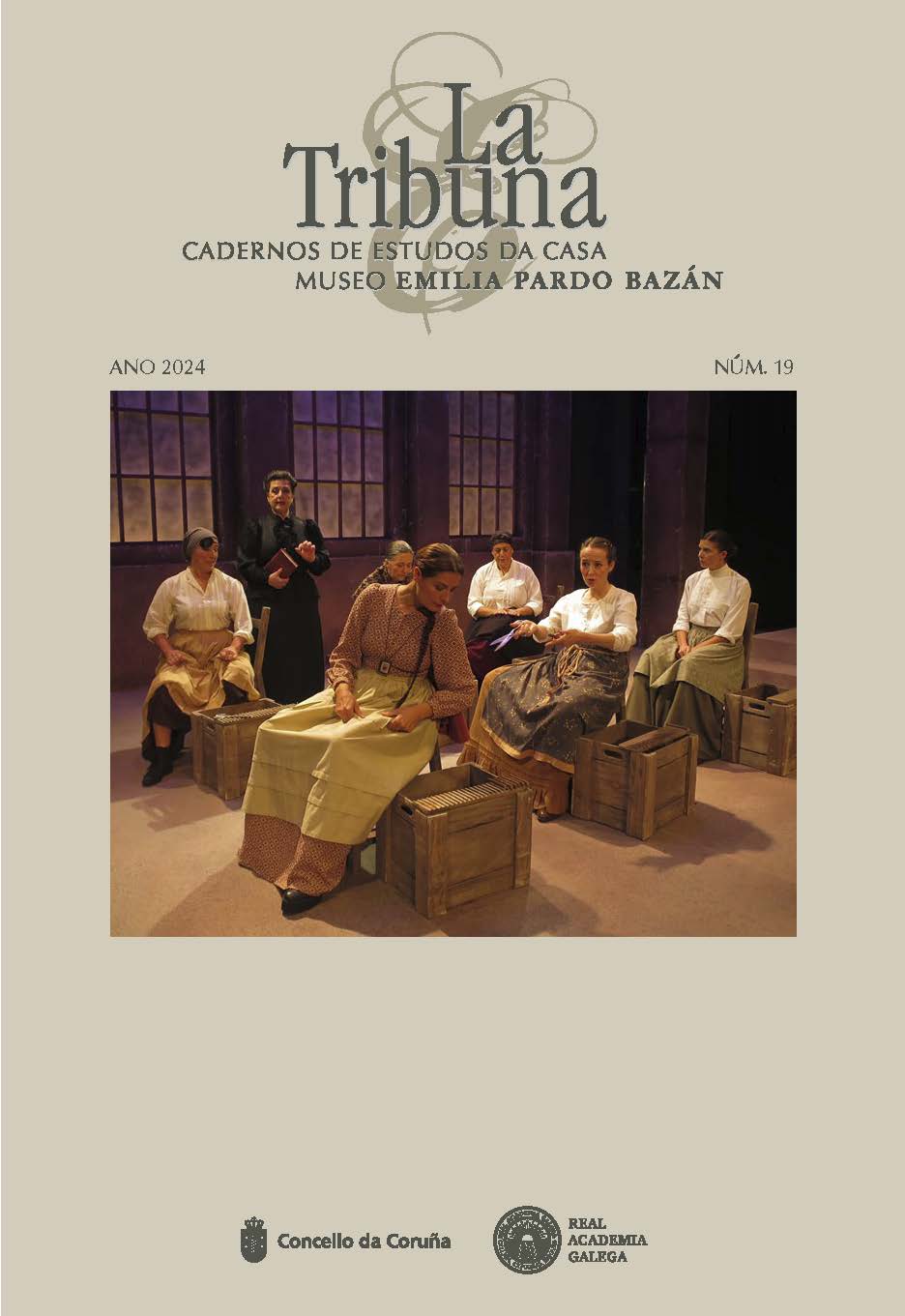La masculinidad alternativa como forma de antideterminismo: una relectura del cura Julián en Los Pazos de Ulloa
Downloads
Published
Issue
Section
License
LICENZA DE USO: Os artigos a texto completo incluídos no noso portal son de acceso libre e propiedade dos seus autores e/ou editores. Calquera acto de reprodución, distribución, comunicación pública e/ou transformación total ou parcial require o consentimento expreso e escrito daqueles. Toda ligazón ao texto completo dos artigos do noso portal debe efectuarse ao noso URL.
DOI:
https://doi.org/10.32766/tribuna.19.359Keywords:
Emilia Pardo Bazán, Los Pazos de Ulloa, determinismo, estudios de género, estudios de masculinidad.Abstract
Although she is known as the main representative of Naturalism in Spain, Emilia
Pardo Bazán rejected the determinism and materialism that formed the basis of this movement
in France, as developed by Émile Zola. In Los Pazos de Ulloa (1886), this rejection is presented
through the character of the priest Julián Álvarez. Raised by a sanctimonious mother and made
an object of ridicule in the seminary for his fastidious cleanliness, Julián constitutes an exception
to traditional ideas about masculinity. This article proposes a reinterpretation of Julián’s character
based on his particular manifestation of gender in the naturalist setting of the novel. Religious and
secular men alike judge Julián for his delicate appearance and behavior, forcing him to engage
in stereotypically masculine activities such as drinking and hunting. However, he resents these
impositions, demonstrating a level of sensitivity condemned by society. This article explores Julián’s
resistance to hegemonic masculinity as a way for Pardo Bazán to rebel against the materialism
required in Naturalism. Using gender and masculinity studies as a theoretical framework, the article
explains how Julián challenges traditional perceptions of gender, exemplifying an alternative and positive masculinity. Thus, what was supposedly a deficiency becomes a possibility for salvation that
allows the priest to materialize another way of being a man. This approach to Los Pazos contributes
to the study of the intersection between gender and religion in nineteenth-century Spanish literature


